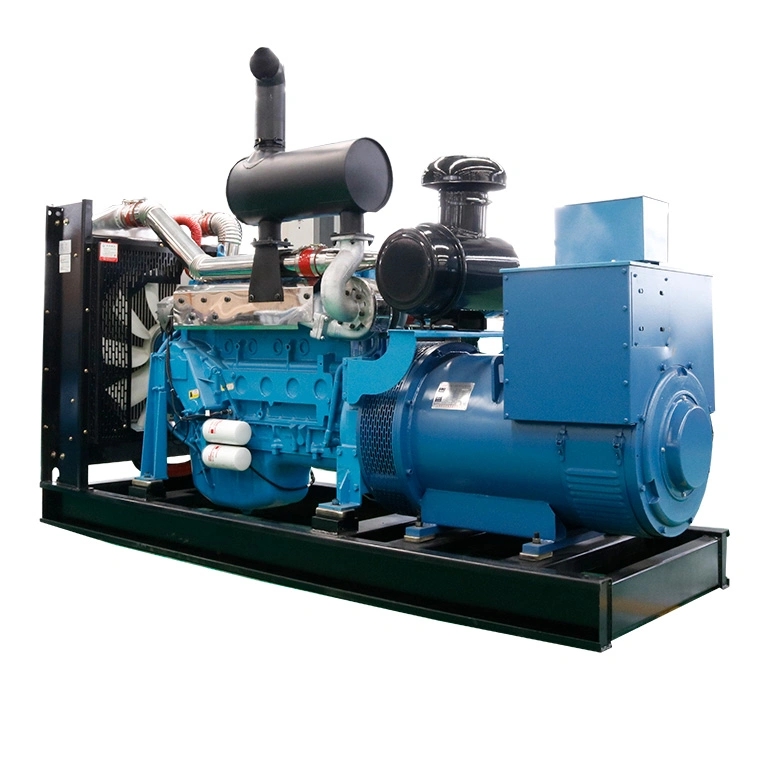Introduction
Diesel generators are essential power sources in various industries and settings where a reliable and uninterrupted power supply is crucial. They are commonly used in remote locations, construction sites, healthcare facilities, data centers, and other critical applications. However, when these generators are operating in corrosive atmospheres, they face unique challenges that can impact their performance, efficiency, and longevity. In this article, we will explore the effects of corrosive environments on diesel generators and discuss strategies to ensure their reliability and performance in such challenging conditions.
Understanding Corrosive Atmospheres
Corrosive atmospheres are characterized by the presence of substances that can cause corrosion on metal surfaces. These substances may include chemicals, moisture, salt, gases, and other contaminants that react with the metal components of a diesel generator. Corrosion is a natural process that can lead to the degradation of materials, weakening of structural integrity, and ultimately, failure of critical components.
In industrial settings such as chemical plants, refineries, coastal areas, and marine environments, corrosive atmospheres are common due to the presence of harsh chemicals, saltwater, humidity, and other corrosive agents. Diesel generators operating in these environments are exposed to the risk of corrosion, which can significantly impact their performance and reliability over time.
Effects of Corrosive Environments on Diesel Generators
Corrosion can affect various components of a diesel generator, including the engine, alternator, fuel system, cooling system, electrical connections, and enclosure. The effects of corrosion on these components can be detrimental and may result in the following issues:
1. Decreased Efficiency: Corrosion on the engine components such as fuel injectors, pistons, and valves can lead to decreased efficiency and power output. Corrosion on the alternator can affect its electrical conductivity and efficiency, resulting in reduced power generation.
2. Increased Maintenance Costs: Corrosion can accelerate wear and tear on components, leading to more frequent maintenance and repair requirements. This can increase downtime and maintenance costs for diesel generators operating in corrosive atmospheres.
3. Reduced Lifespan: Corrosion weakens metal surfaces and can lead to premature failure of critical components. This can shorten the lifespan of the diesel generator and necessitate costly replacements or repairs.
4. Safety Hazards: Corrosion on electrical connections and components can create safety hazards such as short circuits, electrical fires, and equipment malfunctions. These safety risks can pose a threat to personnel and property in industrial settings.
Strategies for Ensuring Reliability and Performance
To mitigate the effects of corrosion on diesel generators operating in corrosive atmospheres, various strategies and best practices can be implemented. These include proper maintenance, material selection, corrosion protection measures, and environmental monitoring. By incorporating these strategies, operators can enhance the reliability and performance of their diesel generators in challenging environments.
1. Material Selection: When designing or selecting a diesel generator for use in a corrosive atmosphere, it is essential to choose materials that are resistant to corrosion. Stainless steel, galvanized steel, and corrosion-resistant coatings can help protect critical components from corrosion and extend the lifespan of the generator.
2. Regular Maintenance: Regular maintenance and inspections are crucial for identifying and addressing corrosion issues before they escalate. Cleaning, lubrication, and corrosion protection treatments should be performed according to the manufacturer's recommendations to prevent corrosion-related damage.
3. Corrosion Protection Measures: Implementing corrosion protection measures such as coatings, sealants, inhibitors, and sacrificial anodes can help shield metal surfaces from corrosive agents. These protective measures create a barrier between the metal components and the corrosive environment, reducing the risk of corrosion damage.

4. Environmental Monitoring: Monitoring the environmental conditions in which the diesel generator operates can provide valuable insights into the level of corrosion risk. Humidity, temperature, salt content, and other factors should be regularly monitored to assess the corrosive potential of the atmosphere and adjust maintenance practices accordingly.
5. Enclosure Design: The design of the generator enclosure plays a critical role in protecting the internal components from corrosive atmospheres. Enclosures should be sealed, weatherproof, and constructed from corrosion-resistant materials to prevent moisture ingress and exposure to corrosive agents.
Case Studies and Success Stories
Several industries have successfully implemented strategies to protect diesel generators from corrosion in corrosive atmospheres. For example, a chemical plant in a coastal area installed stainless steel enclosures for their diesel generators to prevent saltwater corrosion. This simple yet effective measure significantly extended the lifespan of the generators and reduced maintenance costs over time.
In another case, a data center located in a humid environment implemented a comprehensive maintenance program that included regular cleaning, corrosion protection treatments, and environmental monitoring. By proactively addressing corrosion issues, the data center was able to maintain the reliability and performance of their diesel generators and avoid costly downtime.
Conclusion
Diesel generators are indispensable power sources in various industries and settings, but when operating in corrosive atmospheres, they face unique challenges that can impact their reliability and performance. More hints on metal components can lead to decreased efficiency, increased maintenance costs, reduced lifespan, and safety hazards. By implementing strategies such as material selection, regular maintenance, corrosion protection measures, environmental monitoring, and proper enclosure design, operators can safeguard their diesel generators from corrosion and ensure their optimal performance in challenging environments. By taking proactive steps to address corrosion risks, operators can enhance the longevity, efficiency, and reliability of their diesel generators, ultimately ensuring a continuous and uninterrupted power supply for critical applications.
